The long-awaited Bettencourt trial got under way in Bordeaux in south-west France last week, though not before some last-minute delays. Lawyers for some of the ten men accused of profiting from the frailty of L'Oréal heiress and billionaire Liliane Bettencourt sought, unsuccessfully, to postpone the hearing on procedural grounds. Then the prosecution announced that one of the defendants, Bettencourt's former nurse Alain Thurin, 64, would not be appearing as he had tried to hang himself from a tree, news that sent a collective shudder around the packed courtroom. Finally it was revealed that another of the accused, Carlos Vejarano, who managed a Seychelles island owned by Bettencourt, would also not be attending the court on medical grounds, and had produced a certificate for the judges.
It was thus eight defendants who stood trial when proceedings finally began on Wednesday, charged with a variety of offences ranging from abuse of weakness, money laundering and breach of trust to being in receipt of the proceeds of abuse of weakness, money laundering or breach of trust, or of being an accomplice to those offences. All men with privileged positions in society, all finding it hard to hide their humiliation, fear and anger at being in the dock.
The first to give evidence was François-Marie Banier, 67, a photographer, writer and close friend of Liliane Bettencourt who is said to have received 414 million euros from the elderly heiress. Banier, born in 1947 into a “bourgeois” family, painted a portrait of someone who cared only for art and culture but who also worked for a living through his writings – a first novel was published when he was 22 – and his photography. “I have led the life of a worker not a dandy or a little lord,” he insisted. Even if, as one of the judges pointed out, he had lived with his parents on avenue Victor-Hugo in the very chic XVIth arrondissement or district of Paris.
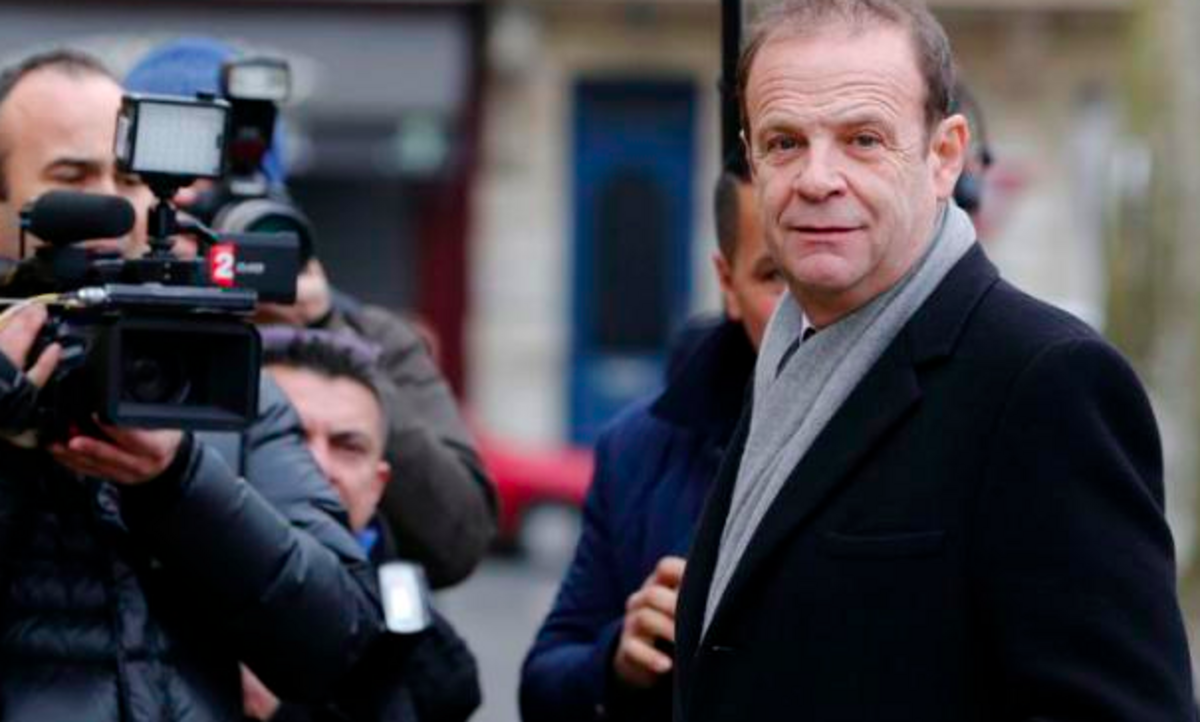
Enlargement : Illustration 1

Banier described how he had met or worked for various well-heeled people, and knew the founder of Elle magazine Hélène Gordon-Lazareff and her husband Pierre who owned France-Soir newspaper, fashion designer Yves Saint-Laurent, Yves Saint-Laurent's partner and businessman Pierre Bergé and the Bettencourts, Liliane and her husband André. “I invented the names of perfumes which gave me royalties and I was able to buy a house. But I never stopped writing or taking photographs,” he said.
However, it was only in 1987 that his career and fortune took off, thanks to the Bettencourts. “I had 50 exhibitions throughout the world,” said Banier, whose personal company had a contract with L'Oréal until the Bettencourt affair broke. “I don't know if this company still exists, I don't understand that kind of thing at all,” he told the court. However, this company had earned Banier nearly 400,000 euros a year, the court heard.
This artist, who at one point said “My head is in the clouds when it comes to figures”, appeared unclear as to exactly how much he was worth. The judges read out his tax declaration for 2011 which cited a 11-million-euro property in the Odéon area of the 6th arrondissement in Paris, a 5-million-euro property held jointly with friends, a business premises in Paris, two riads – Moroccan houses – in Marrakesh and a property in the Gard in southern France. Then there were hundreds of works of art and three hundred paintings kept in safes. “You can have 300 works and show just one,” said Banier.
The photographer was adamant that the L'Oréal heiress was in full possession of her faculties and so could not have been exploited. “You know very well that Madame Bettencourt is of sound mind, and that she was not this risible figure she has been made out to be for inheritance reasons,” said Banier, who has been accused by Bettencourt's daughter Françoise Meyers-Bettencourt of having a “hold” over the elderly woman. “She enjoyed giving money, she said so,” said the photographer, who insisted he, personally, had no need of the money. “She told me 'I have the means. You just take photos and write, don't worry about selling'.” In other words he had simply obeyed Liliane Bettencourt, not abused her.
When Banier was questioned about his curious attraction to ageing billionaires such as the Bettencourts, he replied: “They insinuated themselves in my life as much as I did in theirs.” The judges then pointed to the witness statement given in 2009 by Frédéric Castaing, grandson of celebrated interior designer Madeleine Castaing, who accused the photographer of having mistreated his own grandmother.
Banier is said to have wormed his way into the interior designer's affections, visiting her home every day with his partner Martin d'Orgeval, and then begun to mistreat her, having on one occasion reportedly ripped off her wig, and on another urinated in her cups. He was even alleged to have pushed her on the stairs, leading to hospital treatment for a broken bone.
'It's true I am sometimes obnoxious...'
The photographer dismissed all this as lies. “It's scandalous!” he said. However, some former employees at his home said that Banier had mistreated and humiliated them. One former chef described his former boss as a narcissist, of being an emotional despot. “These are made up stories!” Banier told the court. “It's true I am sometimes obnoxious, but I can't accept this lack of respect for people.” In his opinion it was his accusers who had the problem. “These people are crazy, nuts!”
Another employee described him as a bad, rude person who liked to humiliate people, speaking to them like a dog one minute then making a fuss of them the next. Banier told the court these were more lies, and, moreover, lies from someone who had stolen from him. “Have you read Les Bonnes [a play translated into English as 'The Maids'] by Jean Genet and Le Journal d'une femme de chambre ['Diary of a chambermaid'] by Octave Mirbeau...? Rebellions happen in lots of houses,” Banier shrugged with a resigned air. “Gossip and lies from household staff ... it's complete lunacy.”
The photographer depicted himself as a tortured artist who worked ceaselessly, and who was in no way either a society wheeler-dealer nor a swindler. “I am not a spoilt child … I am not a dandy,” he protested. Friends such as the singer Vanessa Paradis and the businessman Pierre Bergé had acted as character witnesses, sending statements in support of Banier. Vanessa Paradis's mother Corinne Paradis, meanwhile, wrote that Banier was “adorable, nice and calm” and that he “adores [my] daughter's children”. However, the picture of the caring, selfless artist was undermined somewhat when the judges read extracts of Banier's diary which showed his close interest in how much Liliane Bettencourt was giving him and the methods by which she was handing over the money. In the diary he also described Bergé as a “dwarf”.
On Thursday it was the turn of other defendants. Lawyer Pascal Wilhelm, 52, who draws a monthly salary of 35,000 euros, said he had worked painstakingly towards the “regularisation” of Liliane Bettencourt's tax affairs. However, he faced questions over a potential conflict of interest. For at the time he became lawyer and then 'protector' of Liliane Bettencourt in 2010 he was already a lawyer for Bettencourt's wealth manager Patrice de Maistre and a company run by businessman Stéphane Courbit, both of them now co-defendants in this trial.
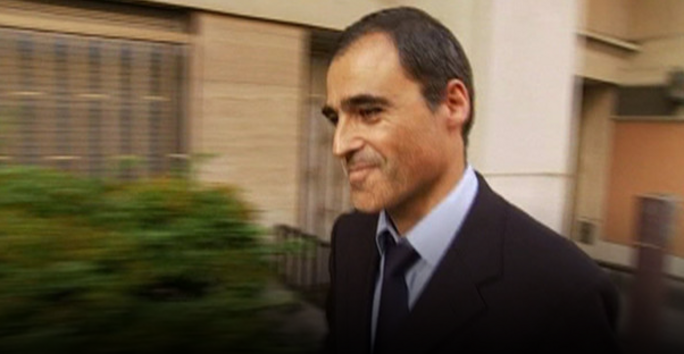
Enlargement : Illustration 2

In particular, at the time he was Bettencourt's lawyer Wilhelm also helped Maistre when the latter was held in police custody and represented him at a court appearance, even though Maistre was then under suspicion of having abused Bettencourt's frailty. So how could he protect the billionaire while at the same defending someone accused of preying on her? “I stopped representing him in October 2010,” Wilhelm pointed out.
Another, more serious, potential conflict of interest came at the end of 2010 when Wilhelm suggested to Liliane Bettencourt that she invest 143 million euros in online gaming through Betclic, a company for which Wilhelm worked, and which was run by Stéphane Courbit. The lawyer denied any wrongdoing, saying that first an investigation then a disciplinary hearing held by the lawyers' representative body the Conseil de l'order des avocats de Paris had concluded that “I had committed no fault”.
Next it was the turn of Stéphane Courbit to give evidence. The 49-year-old described how he had worked his way up through television production, producing popular shows, and eventually sold his share of the Endemol entertainment company for 250 million euros at the end of 2007. In that same year he founded the Lov Group which invests in luxury hotels, restaurants, television and online games, and Courbit told the court that he was in frequent contact with top French companies and banks, and was seeking “new investors every day”. This was apparently a way for the businessman – whom Liliane Bettencourt mistakenly thought was a singer – to make clear that he had no great need of the Bettencourt money.
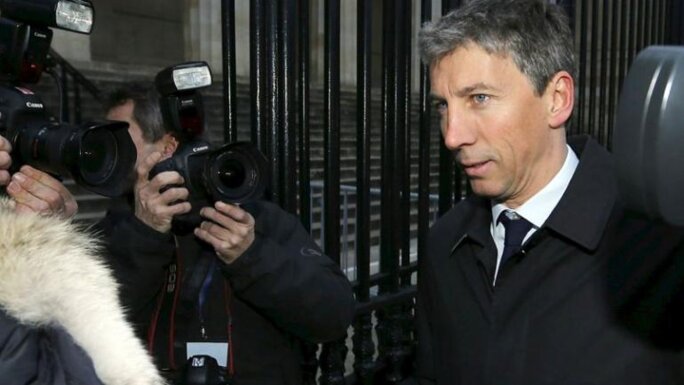
Enlargement : Illustration 3

However Courbit was less forthcoming in court about a recent “transactional protocol”. The Bettencourt family has been asking for the return of the investment made by Liliane Bettencourt in Courbit's Betflic company since 2012. According to several lawyers – it was not stated in court – Courbit has finally returned the 143 million euros plus 15 million euros in interest, the payment being made just a few days before the trial began.
On Thursday afternoon Patrice de Maistre, Liliane Bettencourt's former wealth manager, gave evidence for three hours. Maistre, the only one of the defendants to have spent time in custody over the affair and who put up four million euros in surety to secure his release, occasionally sobbed as he described his family's “support”.
Outlining his career as an accountant followed by a spell in charge of audit firms, and noting that he was worth around 15 million euros, Maistre told the court he was well-off before he took the job as wealth manager: “I earned a good living with the Bettencourts but 80% of my worth was already made,” he said. His main role there was to run two private family companies, Clymène and Téthys, and he said that he had set about rationalising the way the private companies were run, as well as the Bettencourt Foundation, which helps budding entrepreneurs.
'My father told me Banier was a crook'
In a weary voice punctuated with the occasional sigh, Maistre painted himself as a victim of circumstances. “I found myself in a situation that had existed before me, with Swiss bank accounts that had been in place for 50 years, an island bought with Swiss money 20 years before, accounts in Gibraltar … I was faced with this situation and that wasn't my work,” he told the court. “I had gradually fallen into this environment, I had no need or desire to do that.”
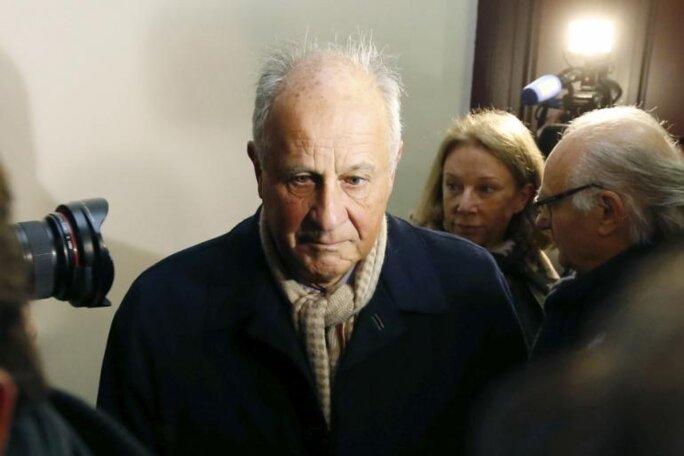
Enlargement : Illustration 4

Maistre then said of the Bettencourts: “The family don’t live in the real world, with all these billions and the overriding interest of L'Oréal.” He then spoke about his role in the conflict between Liliane Bettencourt and her only daughter Françoise Meyers-Bettencourt. “I tried to sort things out in 2008,” he said. Afterwards, he had simply done Liliane Bettencourt's bidding. “After the complaint laid for abuse of weakness, [Liliane Bettencourt] considered that she was in a battle, hence the things she asked me to do,” said Maistre, who also said Bettencourt had “wanted to give me a boat”.
Maistre was also asked about his links with another co-defendant Éric Woerth, the former budget minister under President Nicolas Sarkozy and also treasurer of Sarkozy's party the UMP. “I knew Éric Woerth in 2006, in the context of preparations for the presidential campaign of 2007. I was at the time in the UMP's Premier Cercle [editor's note, a group of wealthy party donors] and I met him through that.” The legal and declared donations that were made to the UMP were briefly mentioned in court. The Bettencourts had wanted to help the UMP and Sarkozy, but Maistre said after that he personally played no further role in politics.
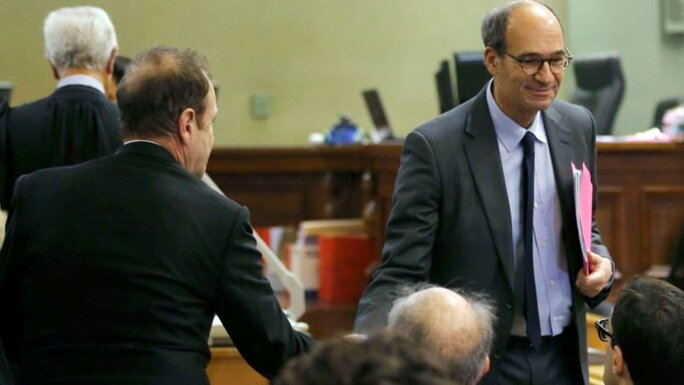
Enlargement : Illustration 5

Maistre also discussed his visits to the Elysée to meet Patrick Ouart, then Nicolas Sarkozy's advisor on judicial affairs, to get information on the progress of the Bettencourt case. “But he also met Madame Meyers-Bettencourt's lawyers,” he pointed out. It was noted that Ouart had told Maistre in advance that the initial complaint for abuse of weakness would not be pursued by Philippe Courroye, who was then the prosecutor handling the case at Nanterre, west of Paris. “How could Monsieur Ouart have known the intentions of the Republic's prosecutor in advance?” asked a judge. “I don't know,” replied Maistre.
When Éric Woerth himself was called to give evidence late on Thursday, it lasted for just 20 minutes, during which he gave a brief account of his professional and political careers. Up until then the MP had been absent from the courtroom.
After the defendants had all been introduced to the court, on Friday it was the turn of Liliane Bettencourt's daughter Françoise Meyers-Bettencourt, who under French law has a right to be heard as a civil party to the criminal proceedings. Meyers-Bettencourt, who had been following the proceedings in court all week with her two sons, said she had triggered the initial complaint over abuse of weakness simply “to protect my mother”. She said that before his death in 2007 her father André Bettencourt had told her: “Banier is a crook. One day there’ll be a trial. Here we are,” she told the court.
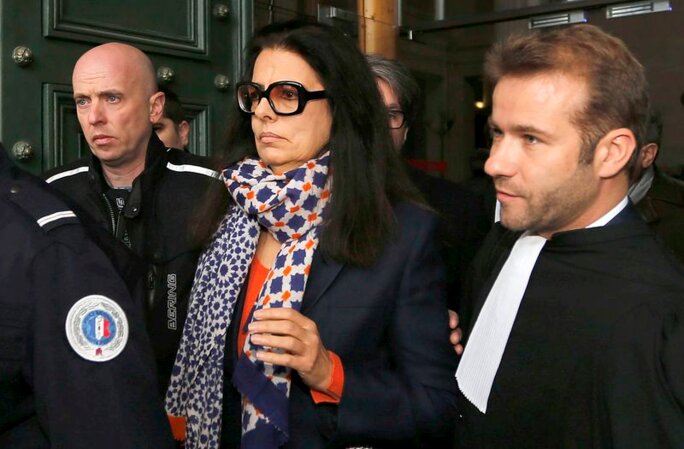
Enlargement : Illustration 6

Françoise Meyers-Bettencourt said her mother was “under the influence” of Banier, whom she described as someone who had “destroyed a family”. She admitted that she had financially “helped” Claire Thibout, Liliane Bettencourt's accountant, but categorically denied having bribed her mother's employees to get their witness statements, as recently alleged by lawyers acting for Maistre and Banier.
One of her two sons, Jean-Victor Meyers, spoke about the vulnerability of his grandmother Liliane Bettencourt, who during one discussion thought she had given “a million” euros to Banier, when in fact the sum involved was a “billion”. He painted a picture of an elderly woman who was disoriented, who was losing her memory, was not always lucid and who forgot people's first names, as well as inventing a sister she had never had. On one occasion, recounted Jean-Victor Meyers, Liliane Bettencourt thought she had bought a lovely building, when in fact she was referring to the American Hospital in Paris where she was staying at the time.
All eight defendants, Éric Woerth, Patrice de Maistre, François-Marie Banier, Martin d’Orgeval, Pascal Wilhelm, Stéphane Courbit, Jean-Michel Normand and Patrice Bonduelle, deny the charges. After last week's statements by the accused, the court will on Monday begin examining in detail the facts relating to the allegations.
---------------------------------------------------------------------------------------------
English version by Michael Streeter


